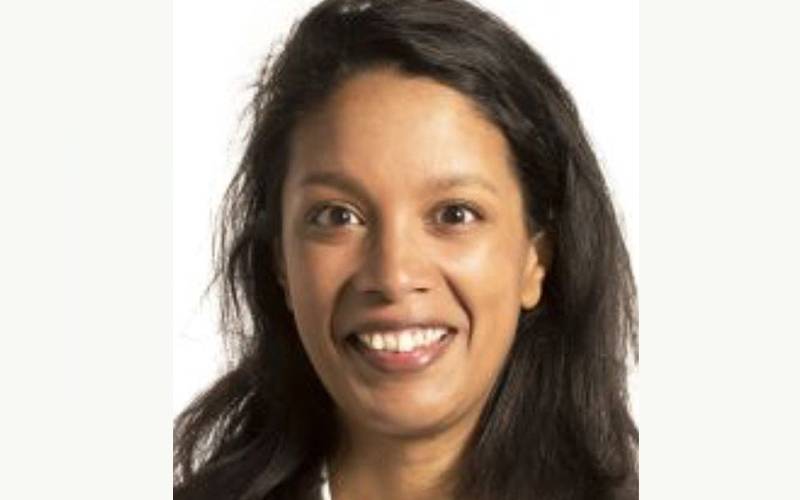This month we speak to Dr Shoba Poduval to find out about her policy secondment as a UCL-OHID Researcher in Residence, supported by UCL Health of the Public.
 What is your role and what does it involve?
What is your role and what does it involve?

I’m an Academic GP and Clinical Lecturer at the Research Department of Primary Care & Population Health. I spend some of my time seeing patients at an inner-city NHS GP practice in Islington and the rest of my time on research, teaching and public engagement at UCL. My interests are in health inequalities experienced by those from deprived and ethnic minority backgrounds, with a particular focus on long-term conditions including type 2 diabetes, and digital health services. My research explores experiences of accessing health services and the development and evaluation of complex interventions to improve health for disadvantaged communities.
I co-lead the teaching for an undergraduate module on Digital Health, supervise BSc, MSc and PhD research students and tutor Years 4-6 medical students.
I’m also very interested in creative public engagement activities and have co-produced photography, podcasts and infographics with the public to explore barriers to research participation and share research findings.
How are you improving the health of the public?
I recently completed a policy secondment as a UCL-OHID Researcher in Residence, supported by UCL Health of the Public. I had the opportunity to spend six months working with the Office for Health Improvement & Disparities, London region (OHID-L). OHID is part of the Department of Health & Social Care and focuses on driving innovation in health improvement, prevention of poor health, and tackling health disparities. I undertook research to support the development of a strategic framework to address ethnic inequalities in London healthcare, through an anti-racist approach. This involved a systematic review identifying and synthesizing the evidence on anti-racist interventions in healthcare, and the development of a theory of change model to accompany the strategic framework.
I also have led or am currently leading studies exploring covid vaccine hesitancy in ethnic minority communities, the experience of gestational diabetes in women from diverse backgrounds, and community-based support for people from disadvantaged backgrounds experiencing digital exclusion (less access, skills or motivation to use digital health services).
What do you find most interesting or enjoyable about your work?
I enjoy being able to develop research questions based on the challenges I see my patients experience in the NHS. Health inequalities have been exacerbated and highlighted since the covid pandemic, cost of living crisis and increasing digitisation, particularly for some groups. The OHID policy secondment was a great opportunity to build on the learning from covid and talk about what needs to be done next to improve ethnic health inequalities. In particular, it was really interesting to see senior NHS and public health leaders discussing structural racism in healthcare and making a commitment to address it. It gives me optimism that there is a collective will to tackle structural racism in healthcare.
How have cross-disciplinary collaborations shaped your research?
I’ve been fortunate to work across disciplines throughout my career. As a digital health researcher, I work with a number of disciplines including IT specialists, human-computer interaction experts, clinicians and psychologists. In my work on health inequalities, I’ve really enjoyed learning more about social science and have tried to incorporate methods and perspectives from social science. The study of people is at the heart of my research, particularly understanding how people look after their health, which social factors influence how they look after their health, and how this affects their behaviours. We aren’t given enough time to think about this in NHS practice, so it’s a privilege to be able to do this in my research!
What advice would you offer to others interested in developing cross-disciplinary research?
Be open to new ideas and perspectives, as this is a great way to learn. The most complex health challenges require people with different skills and perspectives to come together to try new approaches. This is particularly the case in health inequalities research, where innovative thinking is required if we are to design and evaluate solutions effectively.
What's next on the research horizon for you?
I’m hoping to build on the anti-racism research I started with OHID during my policy secondment, and relate this to my interest in long-term conditions. Ethnic minority communities are at higher risk of long-term conditions and multimorbidity and I’m interested in the role that racism plays in this. In keeping with recommendations in the strategic framework we developed, I’m hoping to incorporate as much community involvement as possible using participatory methods and co-design.
If you could make one change in the world today, what would it be?
For everyone to remember that we’re all human, and we’re wired to relate to one another. As researchers, we may have different experiences, personalities, opportunities, and cultures to the communities we work with, but what can be equal in our relationships is our commitment, openness, honesty, trust and respect for each other.
 Close
Close

